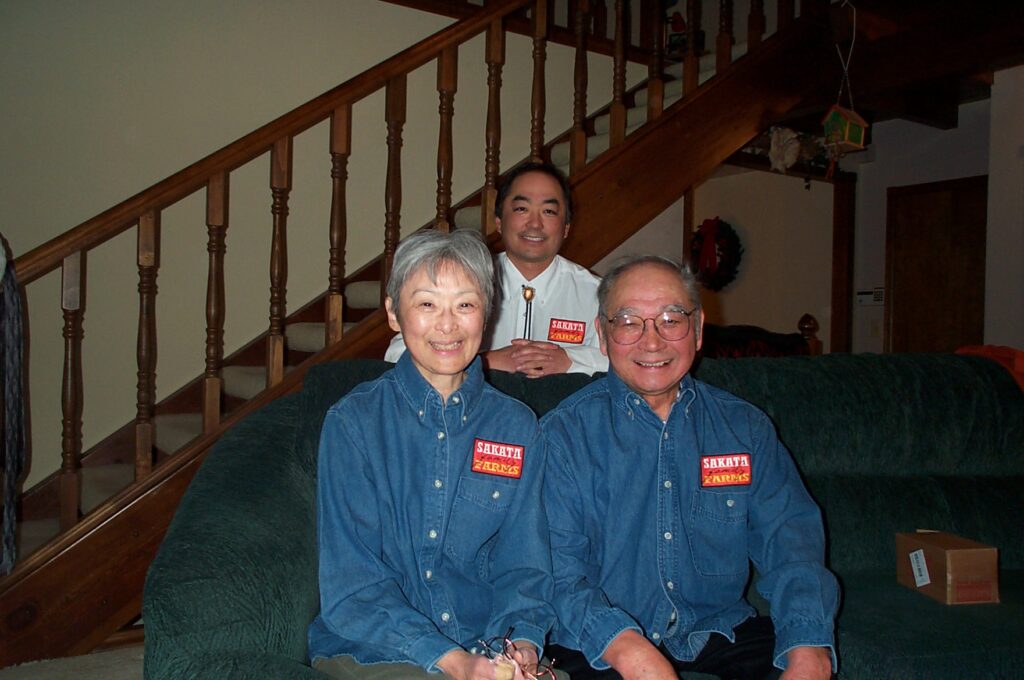Colorado Member
RT Sakata
Sakata Farms
Brighton, CO
Member Since 2013
CALIFORNIA ROOTS: Bob Sakata, the patriarch and founding father of Sakata Farms Inc., Brighton, Colo., grew up in California and first began farming in the Golden State. However, World War II led to his internment in a camp and negated the start of his farming career. After the war ended, Bob Sakata moved to Colorado and started anew.
DIVERSIFICATION ANCHORED BY SWEET CORN: RT Sakata, Bob’s son and current owner of the company, said sweet corn is the firm’s number one crop, but diversification is an important key to their success. On 2,500 acres of land in the northeast quadrant of Colorado near the North Platt River, Sakata Farms grows a number of crops including sweet corn, cabbage, broccoli, onions, barley and wheat. They are a seasonal grower with their sweet corn maturing from about mid-July to mid-September. Because of its seasonality, Sakata Farms uses a Florida-based sales agency — Hugh Branch Inc., Pahokee, Fla. — to handle sales.
“They have corn all year round so it makes sense to be part of their program.”
A FAMILY OPERATION: Though RT bought the family business from his parents several years ago, they still are an integral part of the organization. “My dad still comes in every day. He turns 89 on April 15. I can’t forget that because it is tax day. He is still going strong and my mom (who does the books) is probably the most important person here.”
RT Sakata became the sole owner of the company several years ago in an effort to deal with the estate tax issue. His advice to others: “Make sure you take care of that. It can be very complicated.”
He noted that there is not another generation poised to take the firm from him, so at some point he has to work on his own succession strategy.
KEY TO SUCCESS: “One of the most important things my dad taught me was to focus on the product. He definitely got that right. There are a lot of competitors out there but if you have a good product, it can sell itself.”
RT Sakata said it is not difficult to get the first sale, but to get the second and third, you need a great product.
SEMI-ARID CONDITIONS IN COLORADO: Though Colorado conjures up images of snow-covered mountains and lush greenery, Brighton, Colo., is not located in that part of the state. It is on the eastern plains in the northeast quadrant of the state. “We grow in semi-arid conditions,” he said. “We only get about 11 inches of rain per year.” About the same as Los Angeles.
“We rely on snow pack for our water. Fortunately we usually don’t have to worry about it. In 2002, we had a devastating drought but most of the time we do pretty well.”
WESTERN GROWERS CONNECTION: RT Sakata met several Western Growers staff members at a Colorado meeting in 2012 which spurred his interest in joining the association. As a Colorado grower, he shared many of the concerns of other western growers, especially when it comes to food safety and regulations. However he said Colorado tends to lag behind California in the passing of onerous bills. “We look to California to see what regulations we might have coming down on us in the future,” he joked.
As far as utilizing his Western Growers membership, Sakata said he is particularly fond of the webinars on food safety and the many other industry issues. “I can sit in my office in Colorado and take part in those seminars. It’s great!”
COLORADO: WHY IS IT THE CENTENNIAL STATE?
It was granted admittance to the union as the 38th state on August 1, 1876 — one hundred years after the Declaration of Independence.

